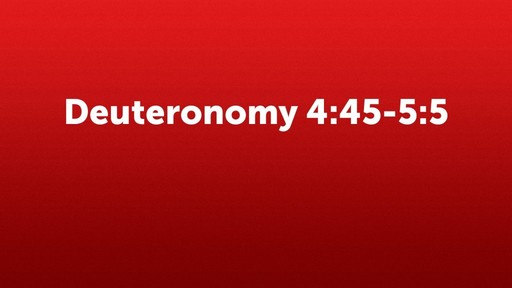Deuteronomy 4:45-5:5

Obviously contrary to fact, he declares that the Lord did not make the covenant with their fathers—that is, the exodus generation—but with the people standing in front of him. This is obviously not true literally, since most of the people standing before Moses on the plains of Moab had not yet been born when the people assembled there,
those that had experienced the exodus, and had met with Yahweh at the mountain are dismissed as irrelevant. He said the Lord didn’t make a covenant with them, but with this generation, which according to Josh 5:1–9, they are uncircumcised, but they are viewed as the true covenant people (27:9–10).
he would become more than just an administrator; he would be the mouthpiece for God’s revelation. That authority is important for him to declare here because it underlies the whole present address. This long speech, while it is cast as the words of Moses, is inspired by God. What Moses says, God says. What God told Moses to say, that he relays to the people.
Scholars are agreed that this is a mnemonic device; it’s a device to help us remember. We have one word for each of our ten fingers. You see, the Decalogue was not given to Israel to be read; it was to be memorized, and this helps us memorize it. We know that as we are memorizing or reciting, we need one command for every one of our fingers.
Actually, the Decalogue, the document, the tablets, were never seen by anybody. They were in the ark of the covenant, buried away at the back end of the tabernacle and later the temple. This is to help memorize this document and to recite it.
The Torah
Third, the document is called the torah in one instance. I have mentioned before that the word torah does not mean “law”; it means “instruction,” probably with a capital I. But this happens only in Exod 24:12: “The LORD said to Moses, ‘Come up to me on the mountain and wait there, that I may give you the tablets of stone, with the torah [that is, the command], which I have written for their instruction.’ ”
To be sure that we get the point that this torah is instruction rather than legislation, he adds that final infinitive “for their instruction”;
